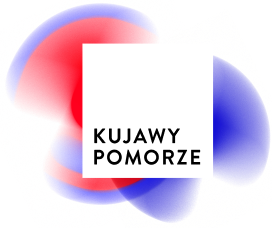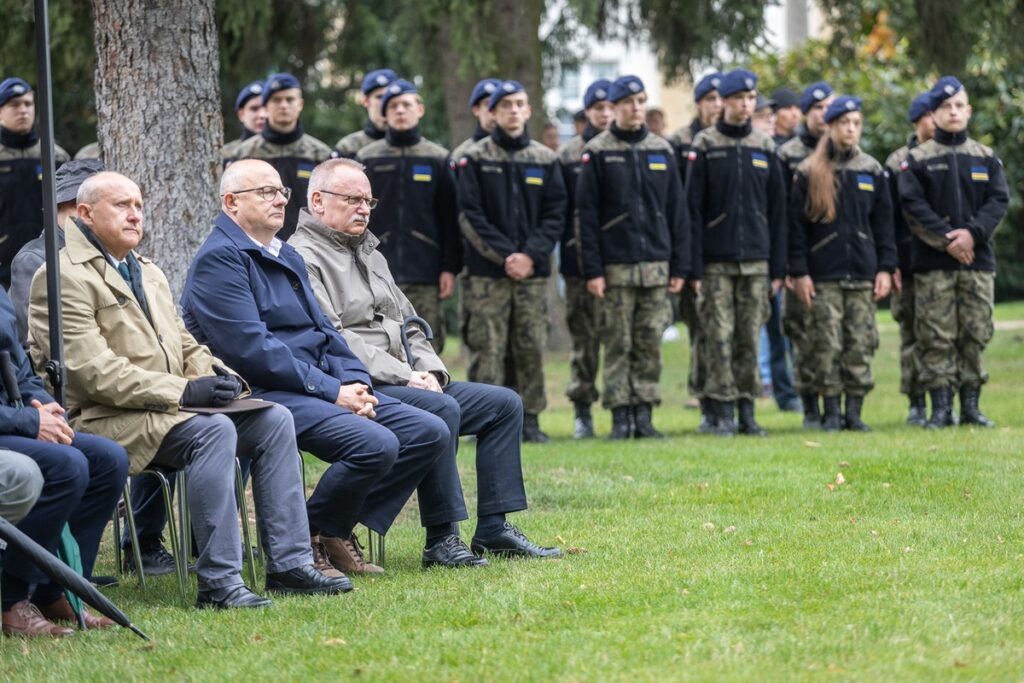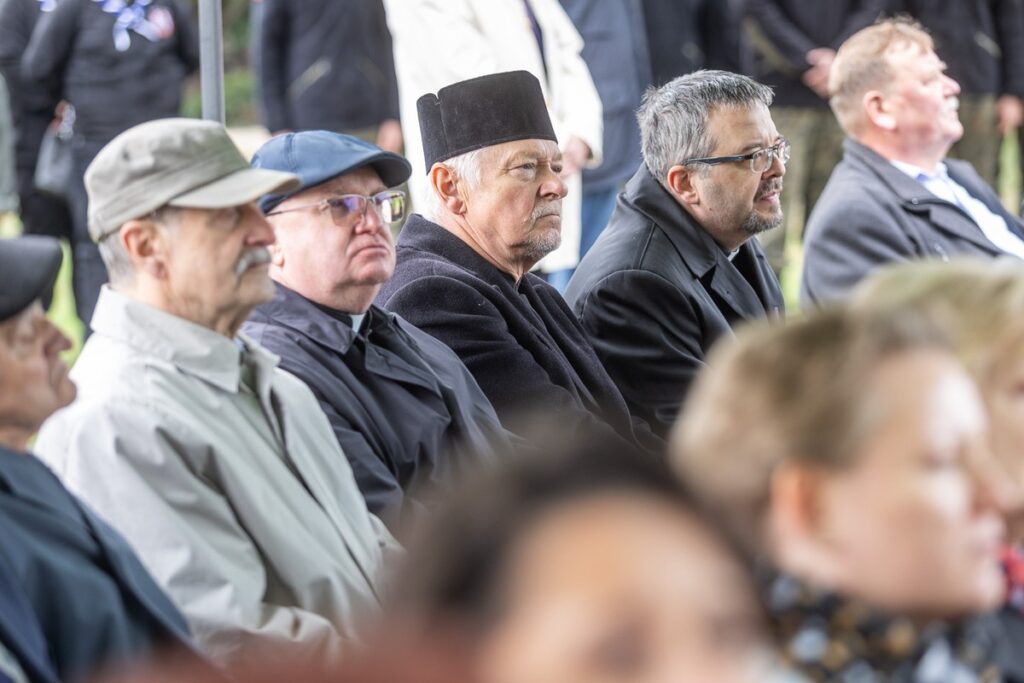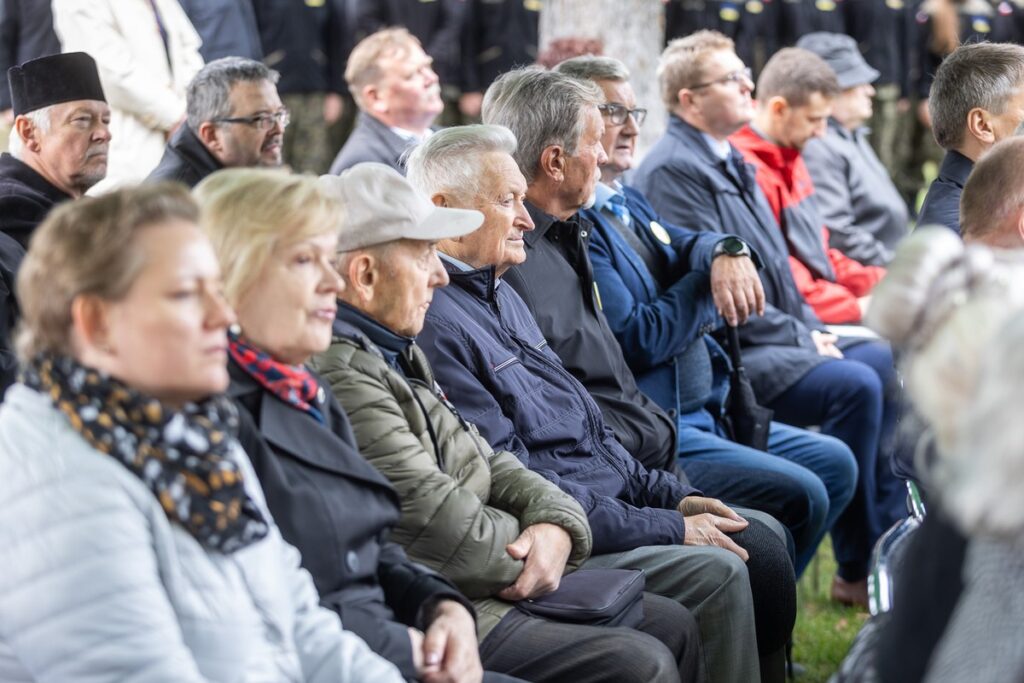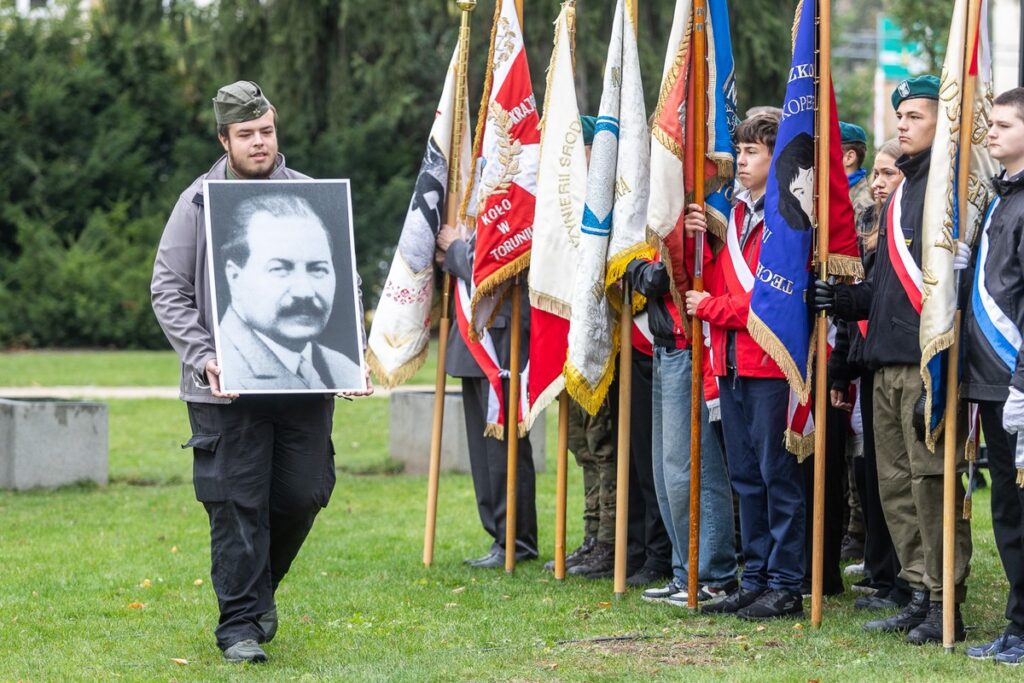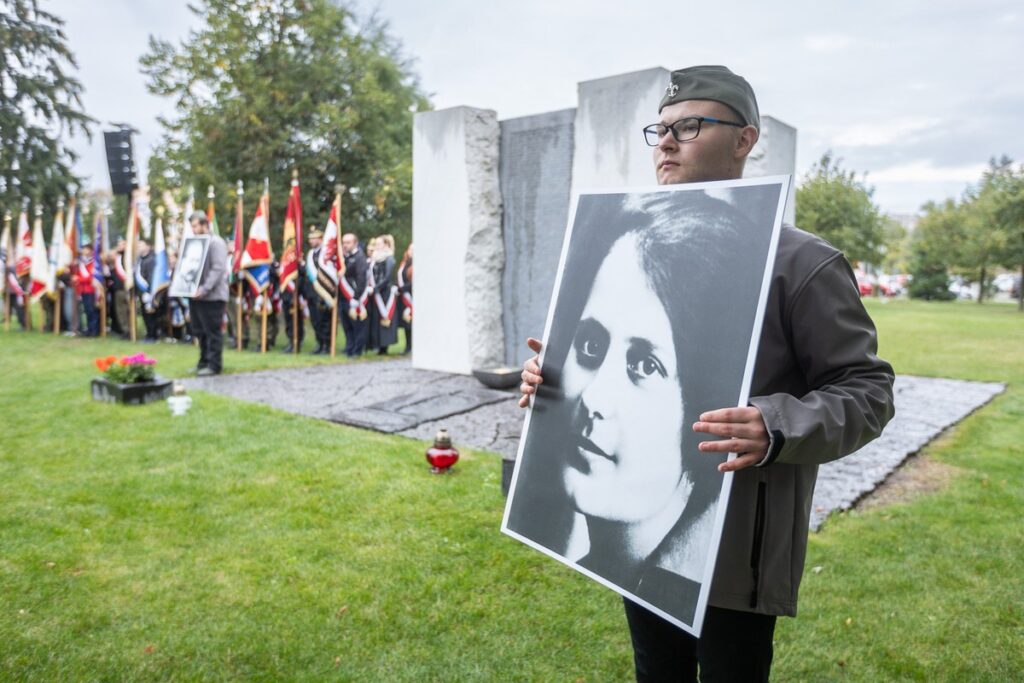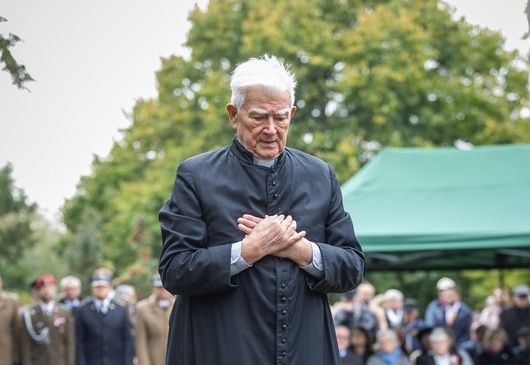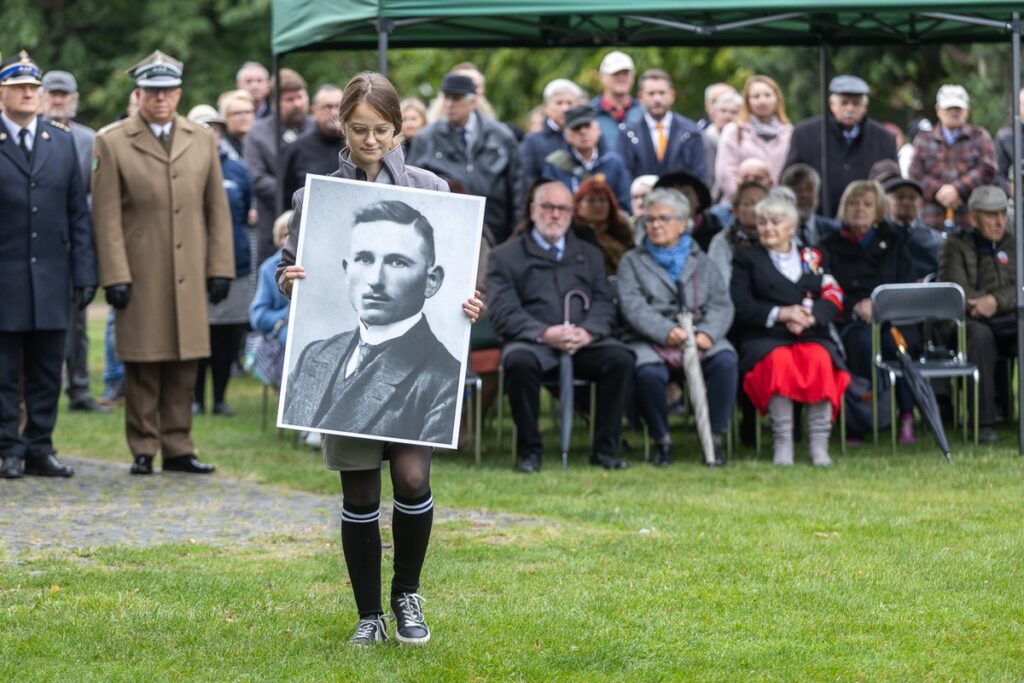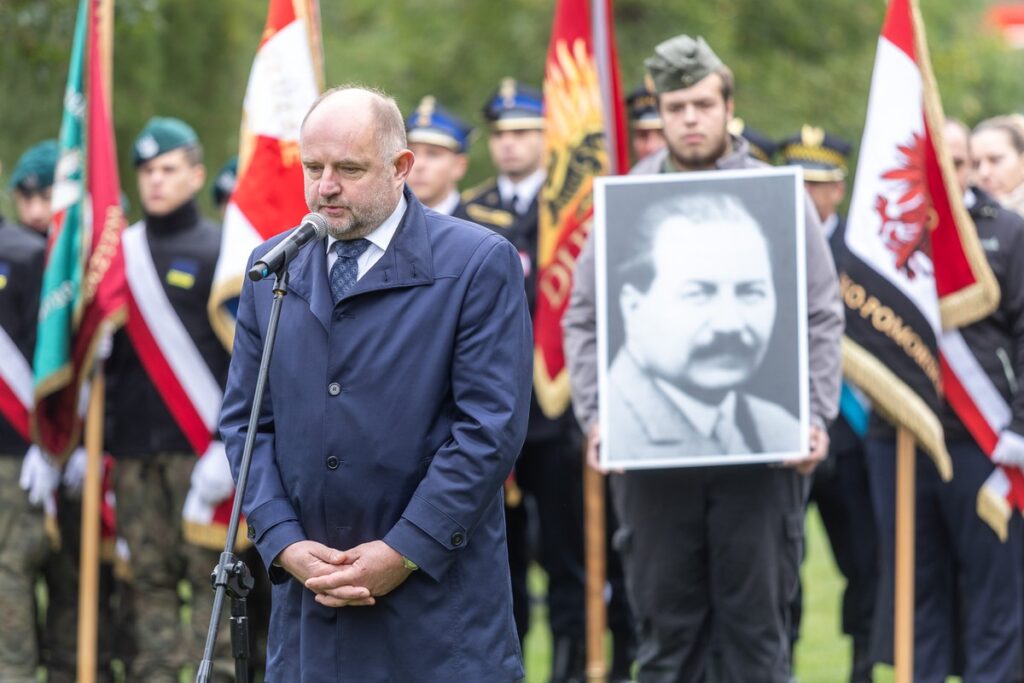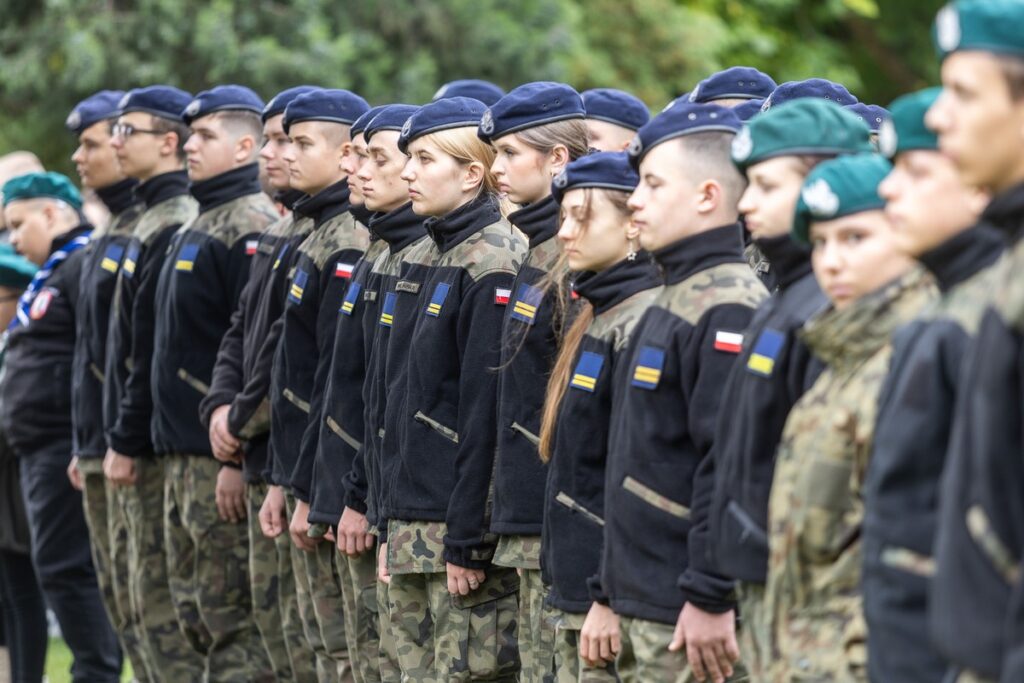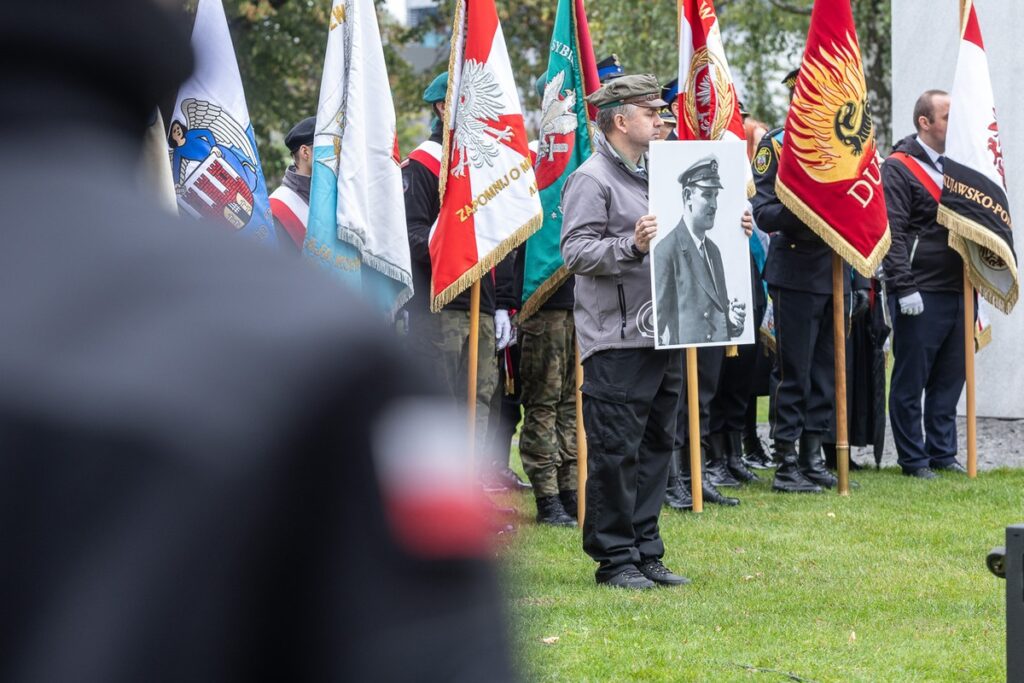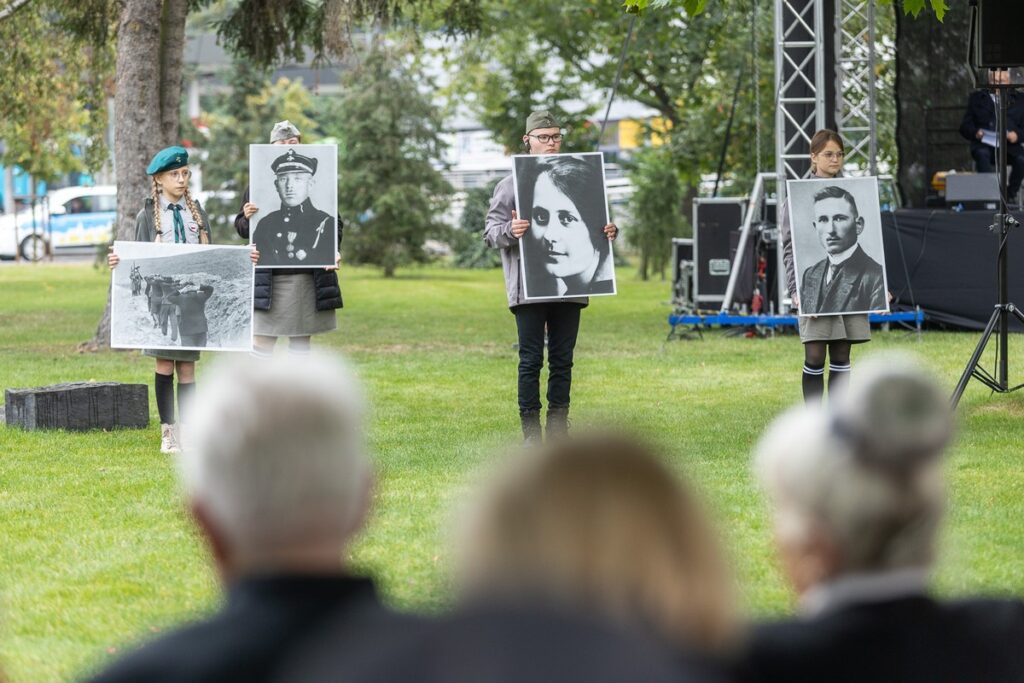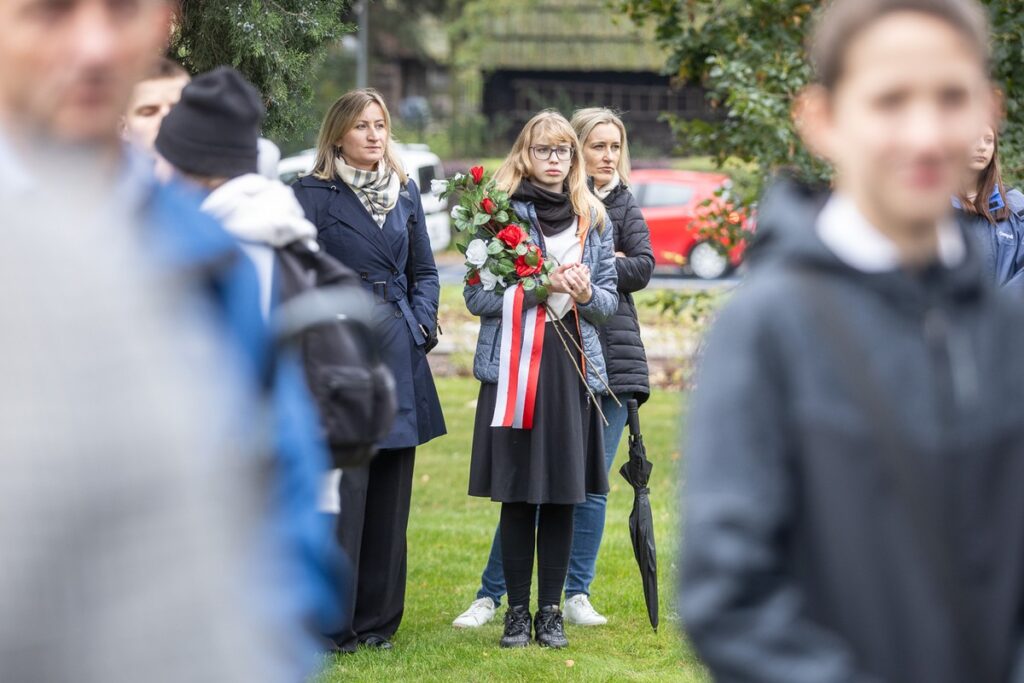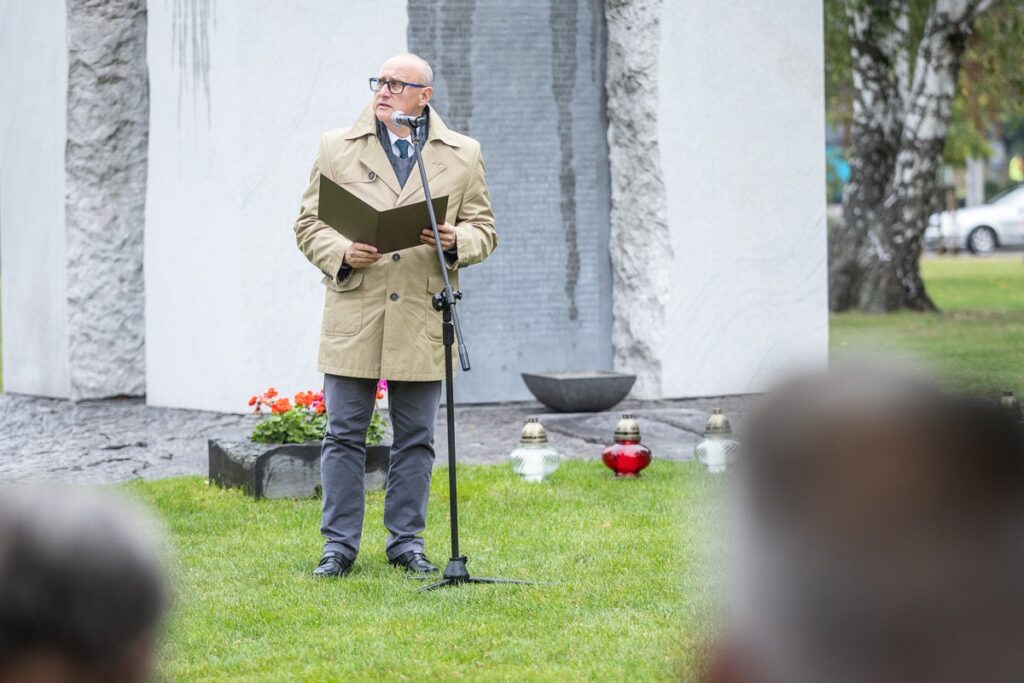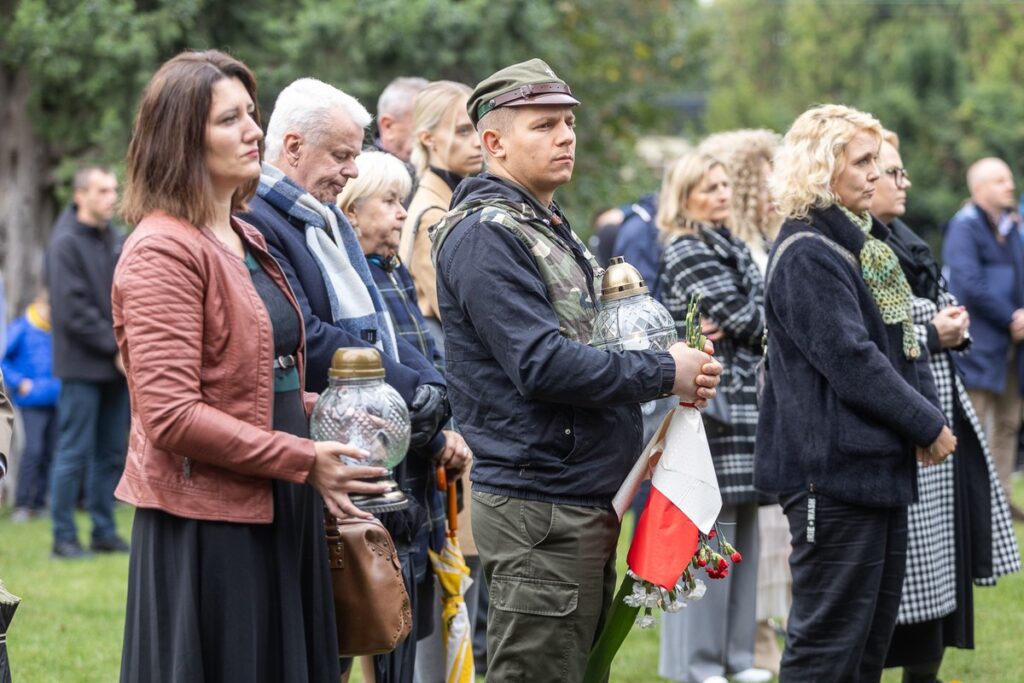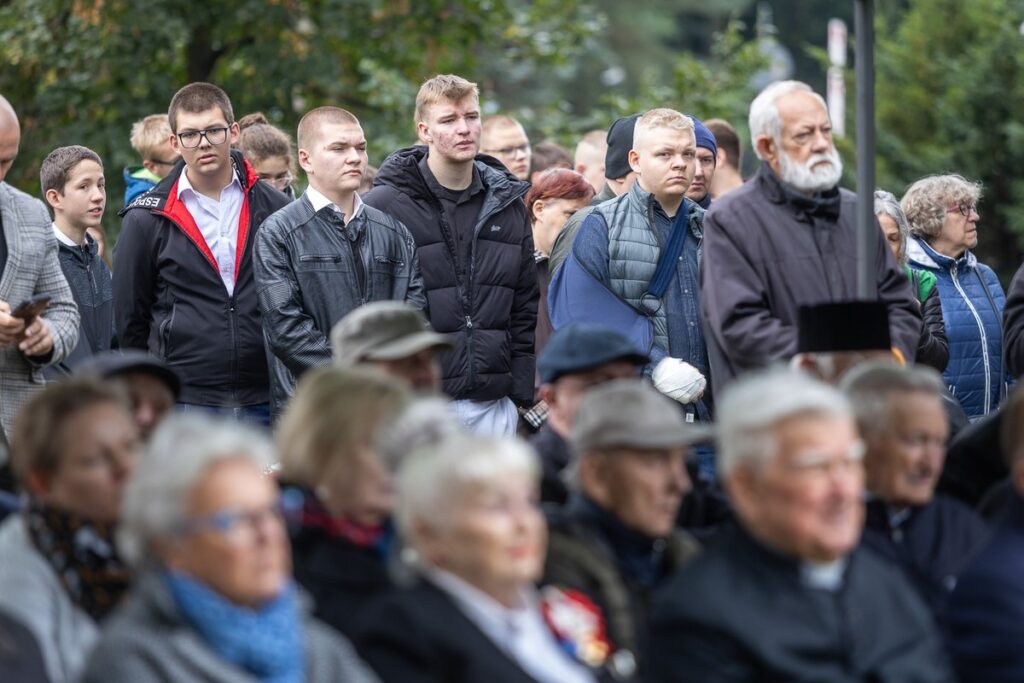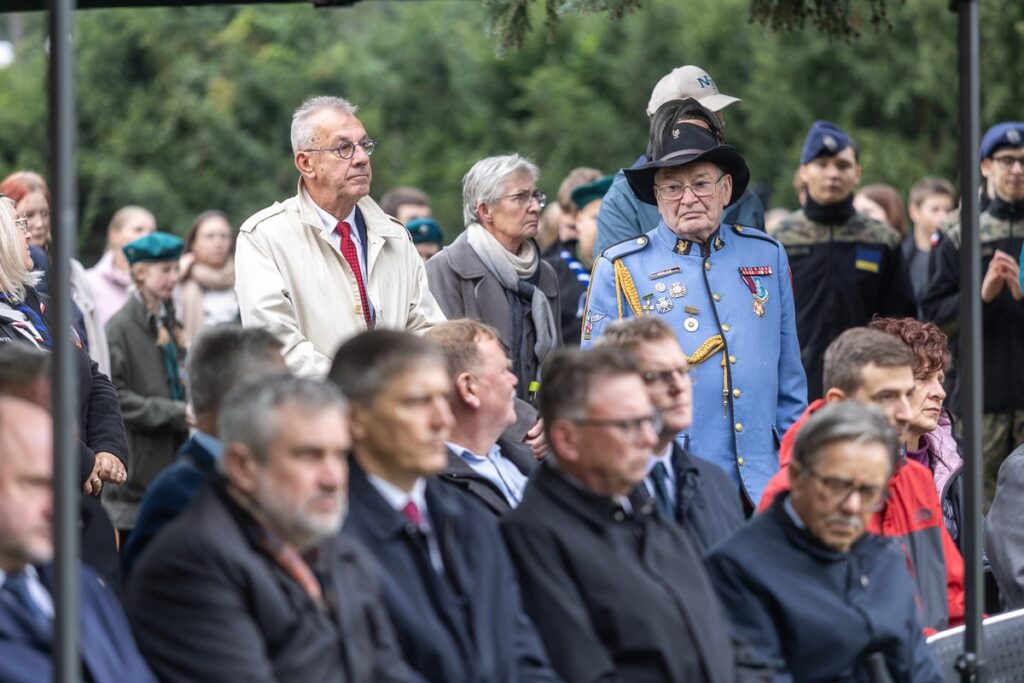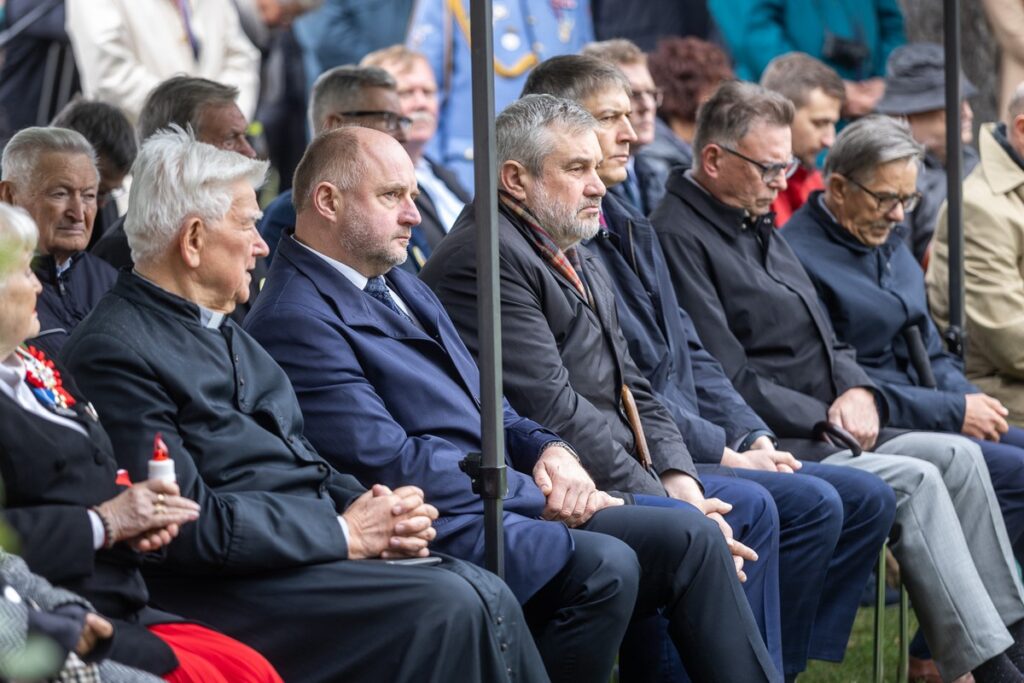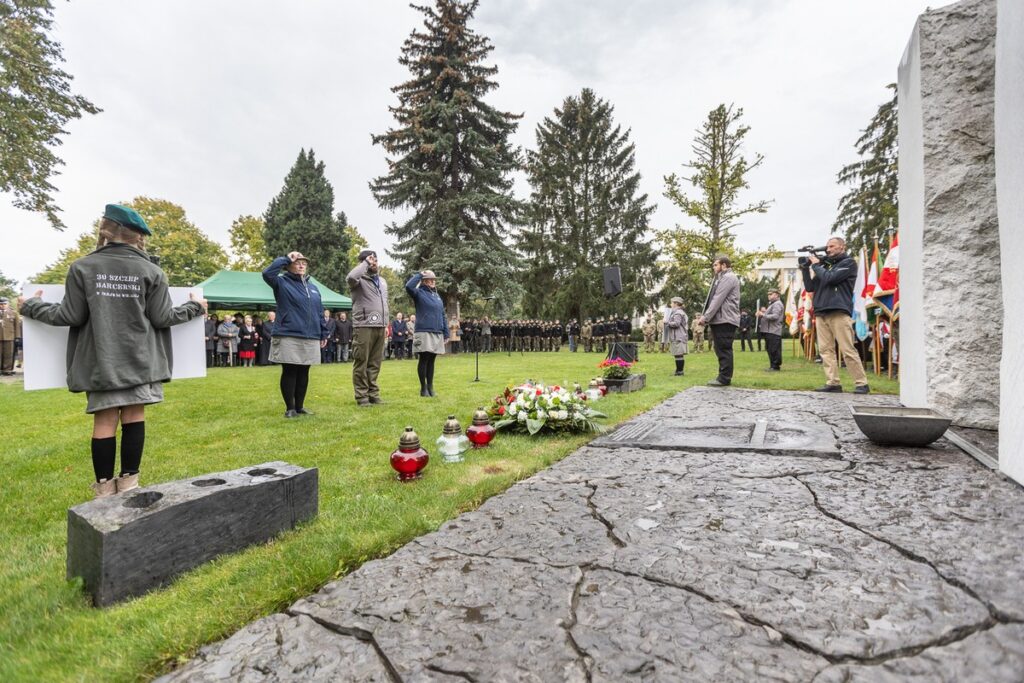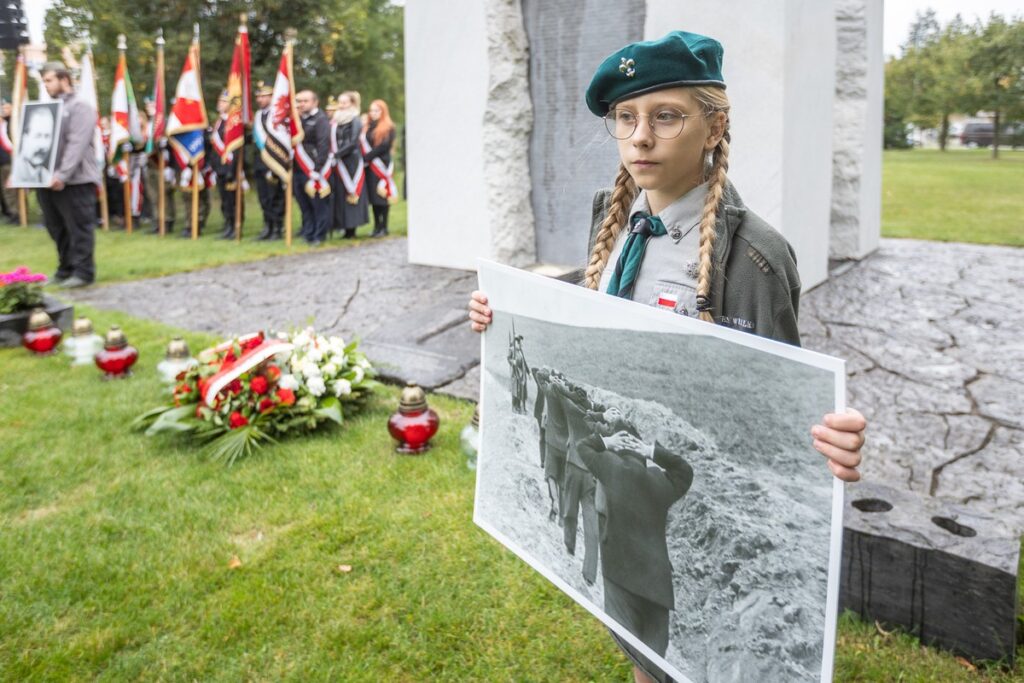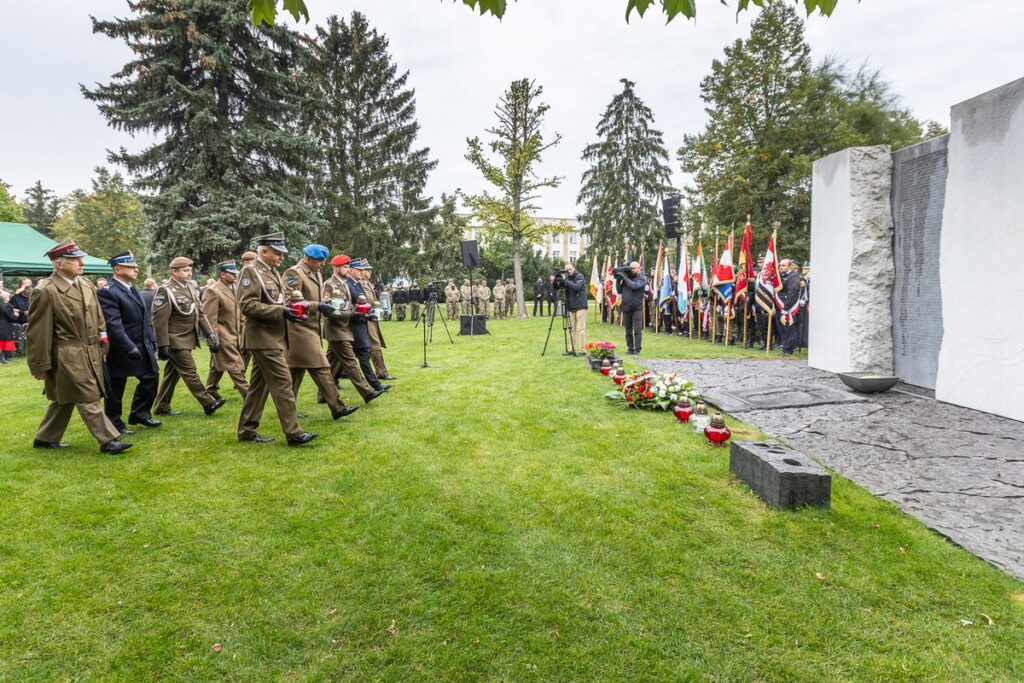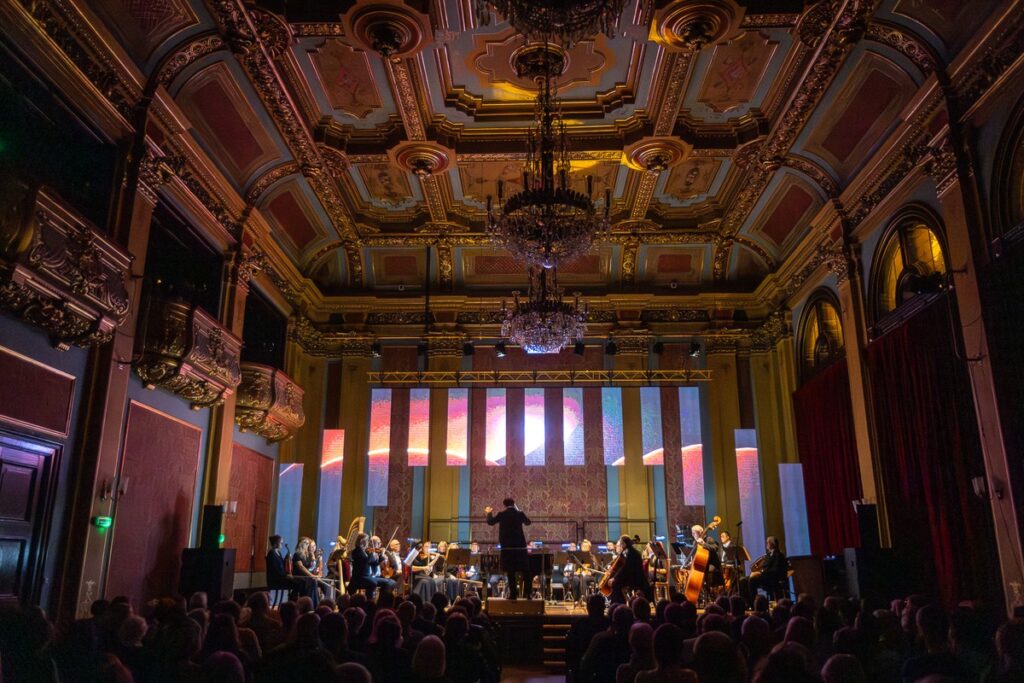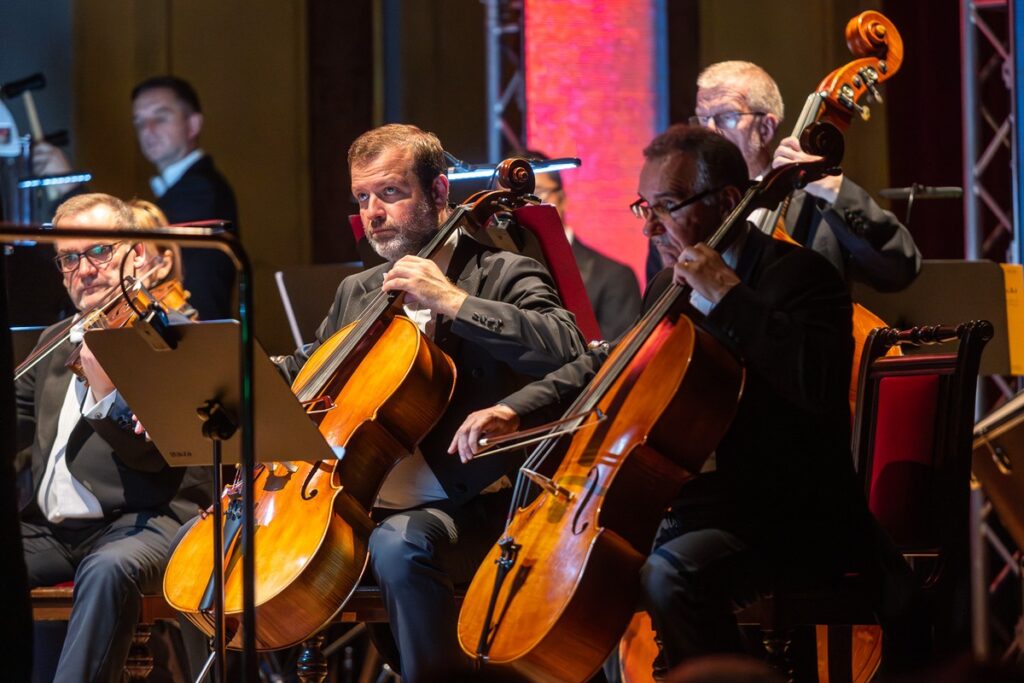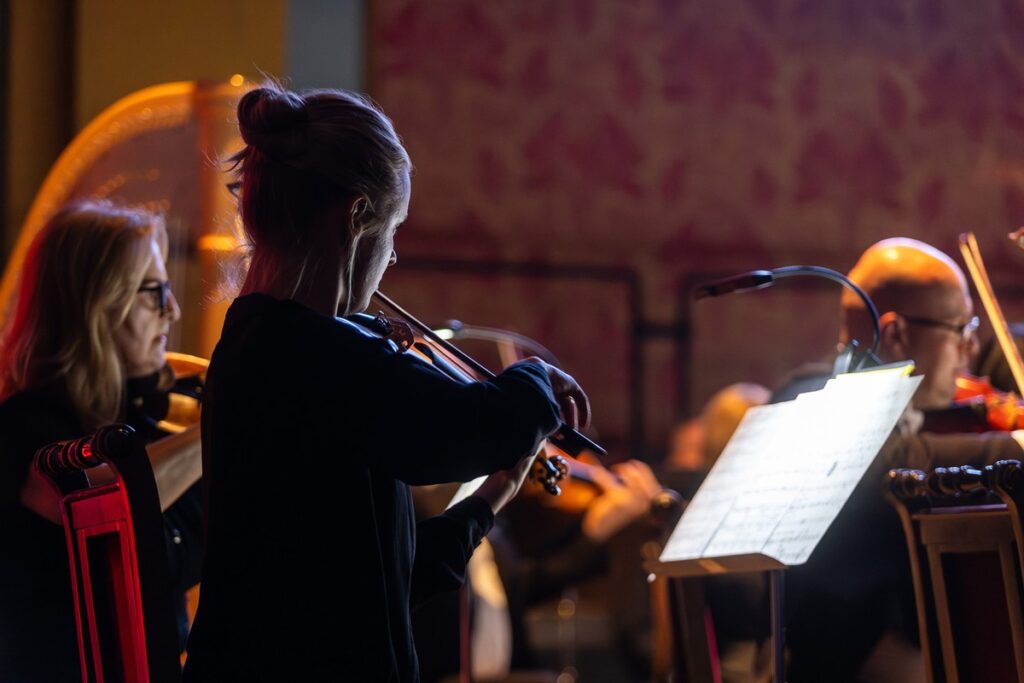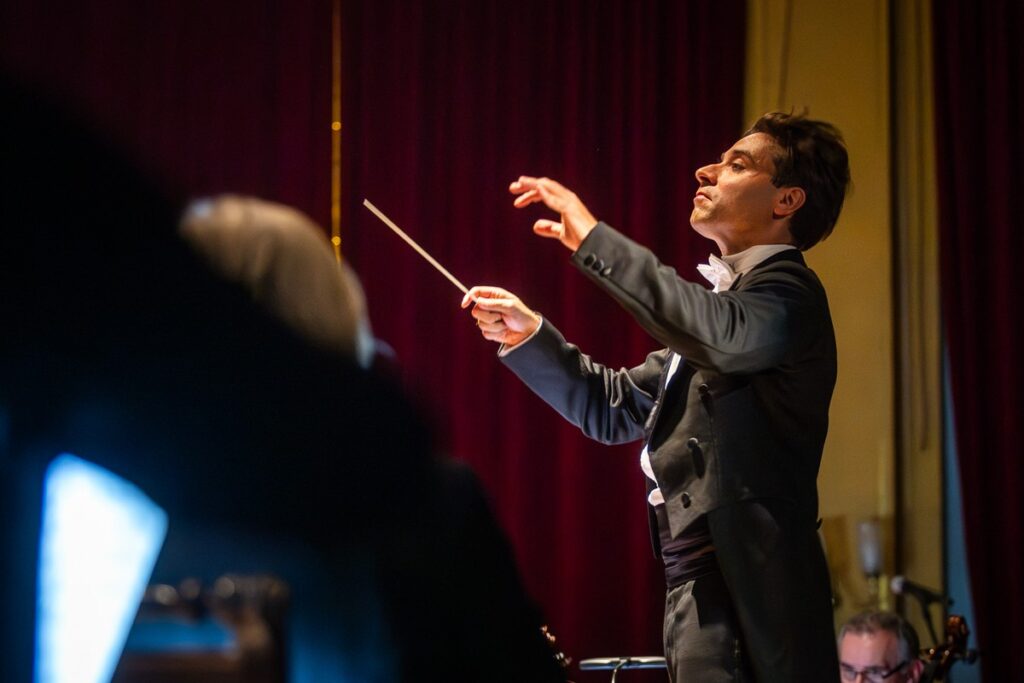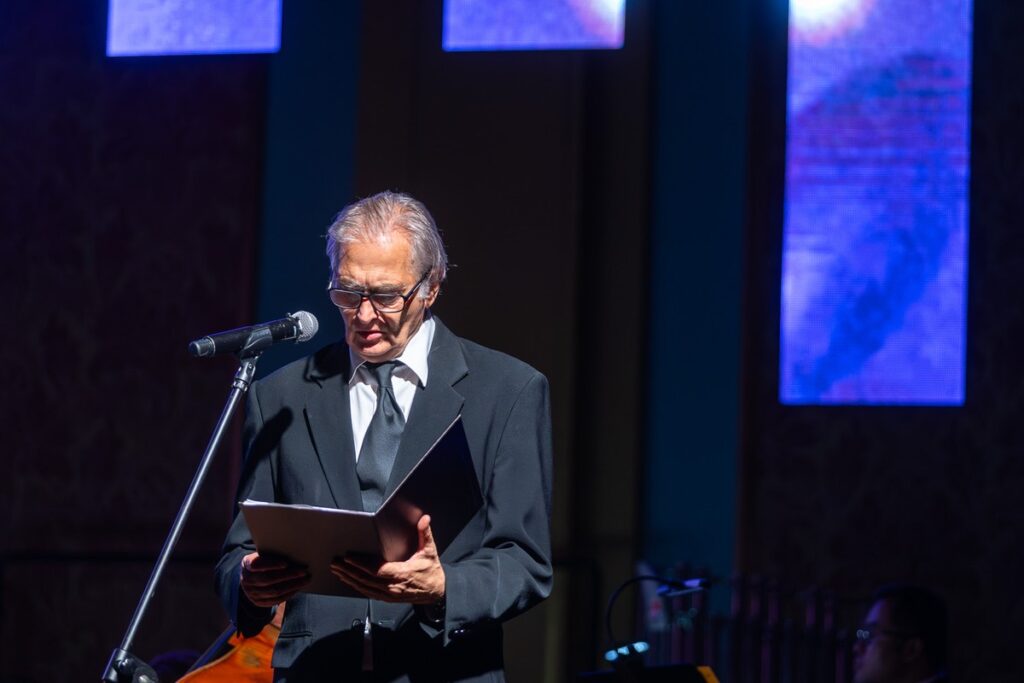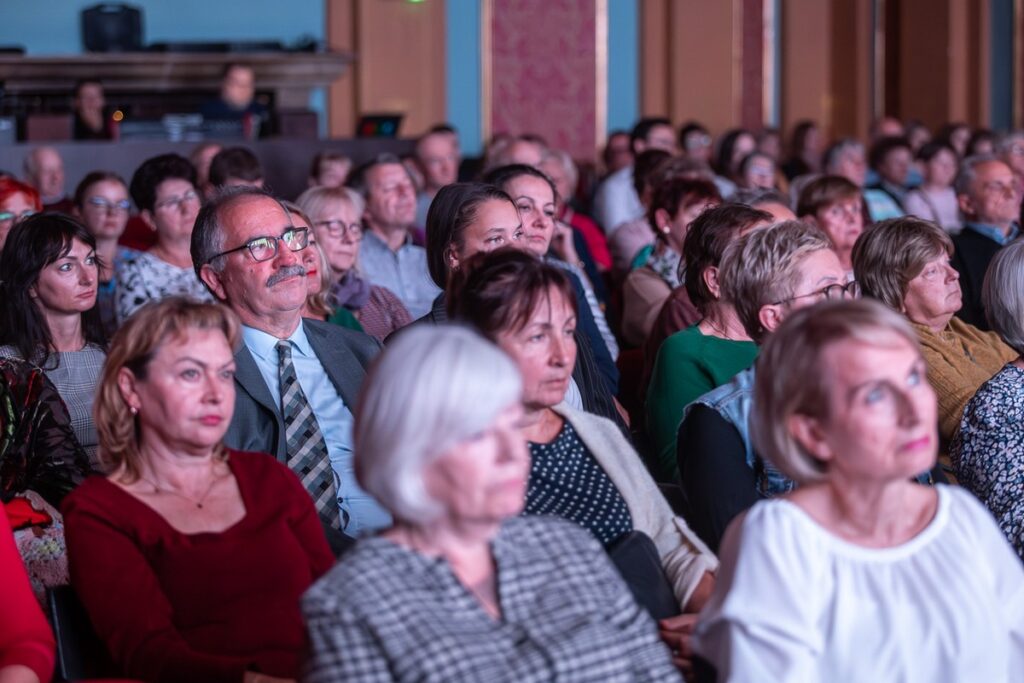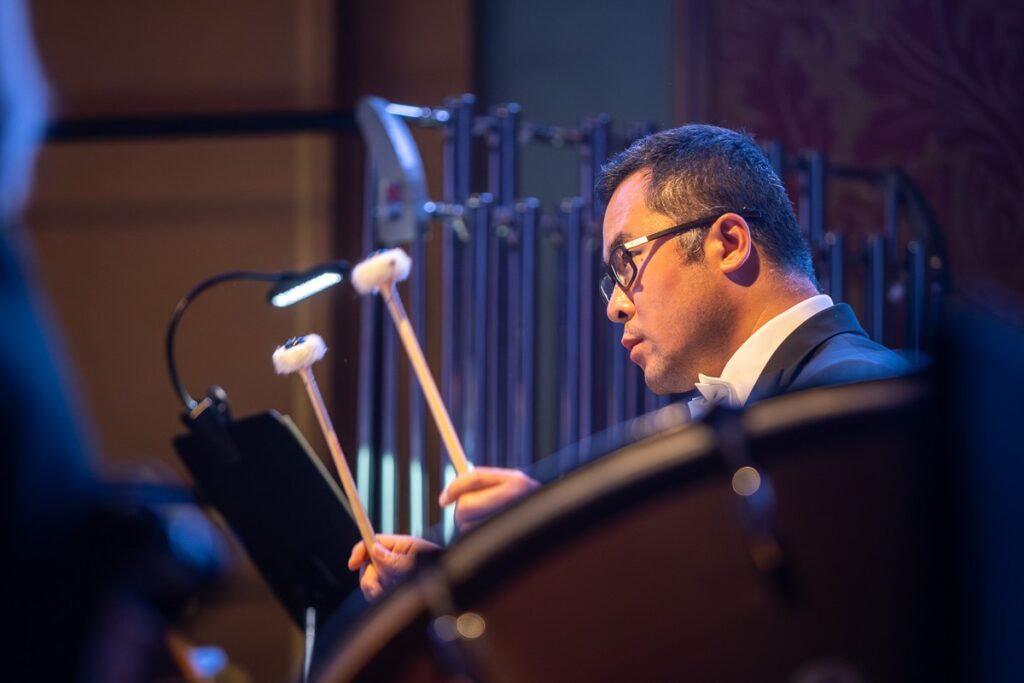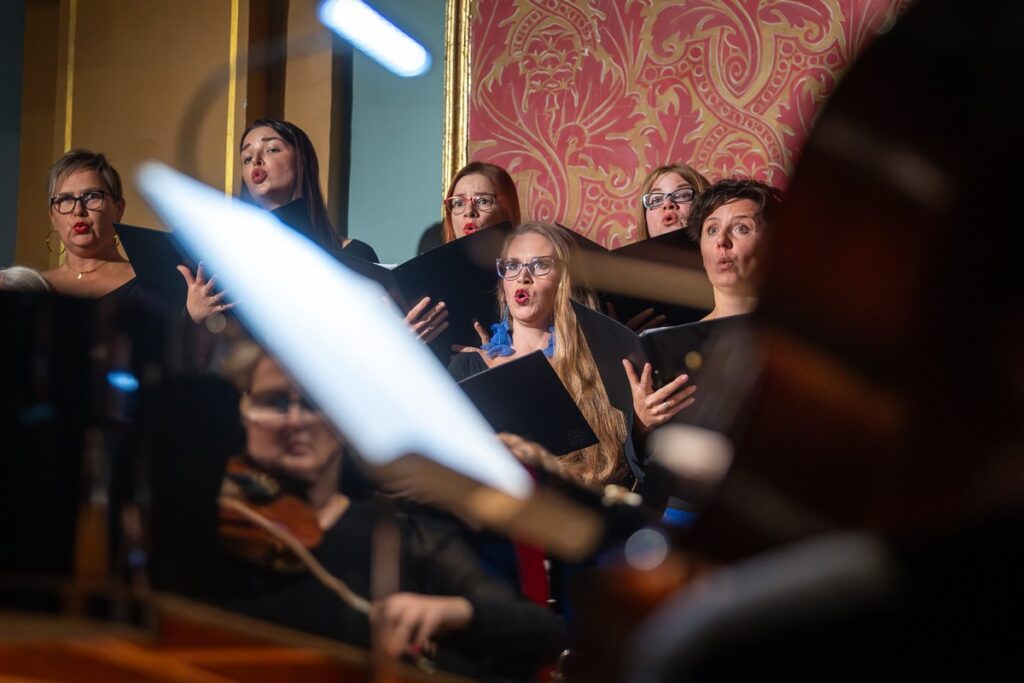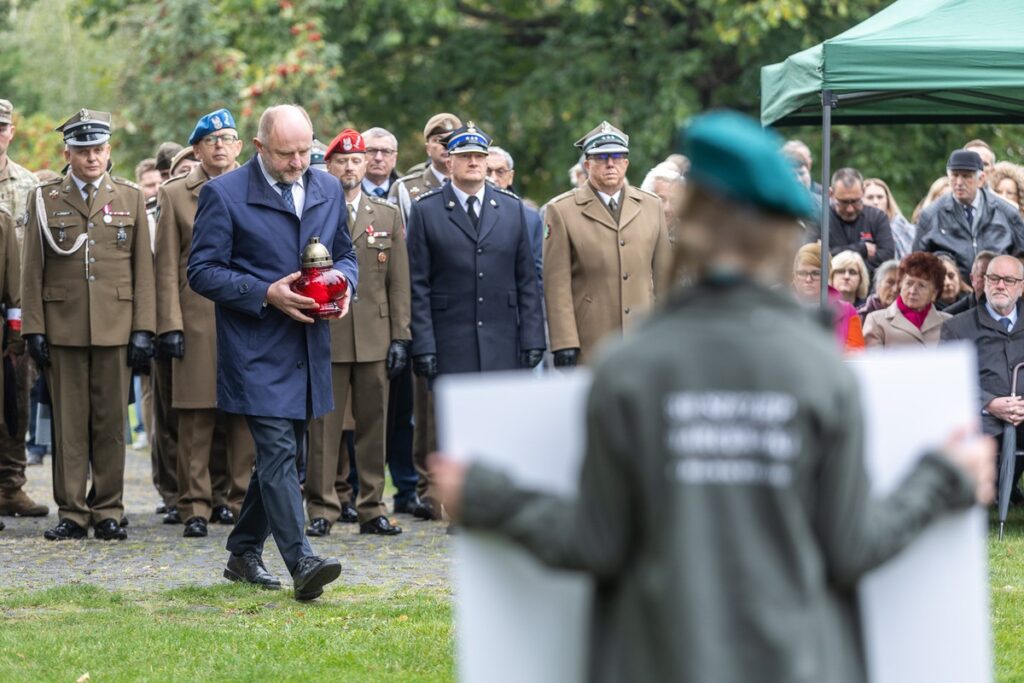
Honoring the Memory of the Murdered: National Day of Remembrance for Victims of the Zbrodnia Pomorska 1939
We commemorated the National Day of Remembrance for the Victims of the Pomeranian Crime of 1939 on Wednesday (October 2) in Toruń’s Park of Remembrance. The regional ceremony took place under the monument unveiled in 2018, which symbolically honors the Polish civilians brutally murdered by German occupiers in the early months of World War II. The evening featured a concert titled “We Remember” at Toruń’s Dwór Artusa.
– “Those events remain alive in our hearts. My uncle was killed then. My grandparents and my mother were miraculously saved from the transport. They only managed to survive because, among the many bad German neighbours, there were also some good ones who simply bailed them out of Szmalcówka [the so-called Szmalcówka in Toruń was a camp and a selection site for arrested and displaced Poles]. There are thousands of such stories…” said Marshal Piotr Całbecki during the ceremony. He was joined by Deputy Marshal Zbigniew Ostrowski, regional councilor Tadeusz Pogoda, Toruń’s Vice President Rafał Pietrucień, as well as scouts, clergy, soldiers, and students from local military schools.
The artistic event “Memory Never Dies” featured somber musical pieces by composers such as Haendel, Górecki, Fauré, Pärt, and Webber. Scouts brought portraits of victims, including Dr. Józef Bednarz, teacher Stanisława Jaworska, priest Franciszek Nogalski, and others who were killed in various massacres in the region. The poem “Mr. Cogito Reflects on Suffering” by Zbigniew Herbert was also recited. Visitors can still view the IPN exhibition “Pomeranian Crime 1939: The Beginning of German Genocide in Occupied Poland.”
The concert featured contemporary Polish compositions, including Górecki’s Little Requiem for a Certain Polka and Penderecki’s Lacrimosa II, performed by Capella Bydgostiensis and other renowned musicians. The music was accompanied by abstract visuals created by Weronika Dziurdziewicz from the Academy of Fine Arts in Gdańsk.
The term “Zbrodnia Pomorska” refers to the genocidal campaign of “de-Polonization” conducted in the autumn of 1939 by Nazi Germany. These mass executions targeted Polish civilians, particularly the intelligentsia, resulting in tens of thousands of deaths, primarily in the Pomorskie region.
This national day of remembrance, established by the Polish Sejm, was first observed last year. The date marks the birthday of Dr. Józef Bednarz, who, in the face of Nazi occupation, chose to die alongside his patients rather than abandon them.
Press Office of the Marshal’s Office
September 27, 2024
Last updated: October 3, 2024
- Regional Commemoration of the National Day of Remembrance for the Victims of the 1939 German Crime in Pomerania, photo by Szymon Zdziebło/Tarantoga for UMWKP
- Regional Commemoration of the National Day of Remembrance for the Victims of the 1939 German Crime in Pomerania, photo by Szymon Zdziebło/Tarantoga for UMWKP
- Regional Commemoration of the National Day of Remembrance for the Victims of the 1939 German Crime in Pomerania, photo by Szymon Zdziebło/Tarantoga for UMWKP
- Regional Commemoration of the National Day of Remembrance for the Victims of the 1939 German Crime in Pomerania, photo by Szymon Zdziebło/Tarantoga for UMWKP
- Regional Commemoration of the National Day of Remembrance for the Victims of the 1939 German Crime in Pomerania, photo by Szymon Zdziebło/Tarantoga for UMWKP
- Regional Commemoration of the National Day of Remembrance for the Victims of the 1939 German Crime in Pomerania, photo by Szymon Zdziebło/Tarantoga for UMWKP
- Regional Commemoration of the National Day of Remembrance for the Victims of the 1939 German Crime in Pomerania, photo by Szymon Zdziebło/Tarantoga for UMWKP
- Regional Commemoration of the National Day of Remembrance for the Victims of the 1939 German Crime in Pomerania, photo by Szymon Zdziebło/Tarantoga for UMWKP
- Regional Commemoration of the National Day of Remembrance for the Victims of the 1939 German Crime in Pomerania, photo by Szymon Zdziebło/Tarantoga for UMWKP
- Regional Commemoration of the National Day of Remembrance for the Victims of the 1939 German Crime in Pomerania, photo by Szymon Zdziebło/Tarantoga for UMWKP
- Regional Commemoration of the National Day of Remembrance for the Victims of the 1939 German Crime in Pomerania, photo by Szymon Zdziebło/Tarantoga for UMWKP
- Regional Commemoration of the National Day of Remembrance for the Victims of the 1939 German Crime in Pomerania, photo by Szymon Zdziebło/Tarantoga for UMWKP
- Regional Commemoration of the National Day of Remembrance for the Victims of the 1939 German Crime in Pomerania, photo by Szymon Zdziebło/Tarantoga for UMWKP
- Regional Commemoration of the National Day of Remembrance for the Victims of the 1939 German Crime in Pomerania, photo by Szymon Zdziebło/Tarantoga for UMWKP
- Regional Commemoration of the National Day of Remembrance for the Victims of the 1939 German Crime in Pomerania, photo by Szymon Zdziebło/Tarantoga for UMWKP
- Regional Commemoration of the National Day of Remembrance for the Victims of the 1939 German Crime in Pomerania, photo by Szymon Zdziebło/Tarantoga for UMWKP
- Regional Commemoration of the National Day of Remembrance for the Victims of the 1939 German Crime in Pomerania, photo by Szymon Zdziebło/Tarantoga for UMWKP
- Regional Commemoration of the National Day of Remembrance for the Victims of the 1939 German Crime in Pomerania, photo by Szymon Zdziebło/Tarantoga for UMWKP
- Regional Commemoration of the National Day of Remembrance for the Victims of the 1939 German Crime in Pomerania, photo by Szymon Zdziebło/Tarantoga for UMWKP
- Regional Commemoration of the National Day of Remembrance for the Victims of the 1939 German Crime in Pomerania, photo by Szymon Zdziebło/Tarantoga for UMWKP
- Regional Commemoration of the National Day of Remembrance for the Victims of the 1939 German Crime in Pomerania, photo by Szymon Zdziebło/Tarantoga for UMWKP
- Regional Commemoration of the National Day of Remembrance for the Victims of the 1939 German Crime in Pomerania, photo by Szymon Zdziebło/Tarantoga for UMWKP
- Regional Commemoration of the National Day of Remembrance for the Victims of the 1939 German Crime in Pomerania, photo by Szymon Zdziebło/Tarantoga for UMWKP
- Regional Commemoration of the National Day of Remembrance for the Victims of the 1939 German Crime in Pomerania, photo by Szymon Zdziebło/Tarantoga for UMWKP
- Regional Commemoration of the National Day of Remembrance for the Victims of the 1939 German Crime in Pomerania, photo by Szymon Zdziebło/Tarantoga for UMWKP
- Regional Commemoration of the National Day of Remembrance for the Victims of the 1939 German Crime in Pomerania, photo by Szymon Zdziebło/Tarantoga for UMWKP
- Regional Commemoration of the National Day of Remembrance for the Victims of the 1939 German Crime in Pomerania, photo by Szymon Zdziebło/Tarantoga for UMWKP
- Regional Commemoration of the National Day of Remembrance for the Victims of the 1939 German Crime in Pomerania, photo by Szymon Zdziebło/Tarantoga for UMWKP
- Regional Commemoration of the National Day of Remembrance for the Victims of the 1939 German Crime in Pomerania, photo by Szymon Zdziebło/Tarantoga for UMWKP
- Regional Commemoration of the National Day of Remembrance for the Victims of the 1939 German Crime in Pomerania, photo by Szymon Zdziebło/Tarantoga for UMWKP

